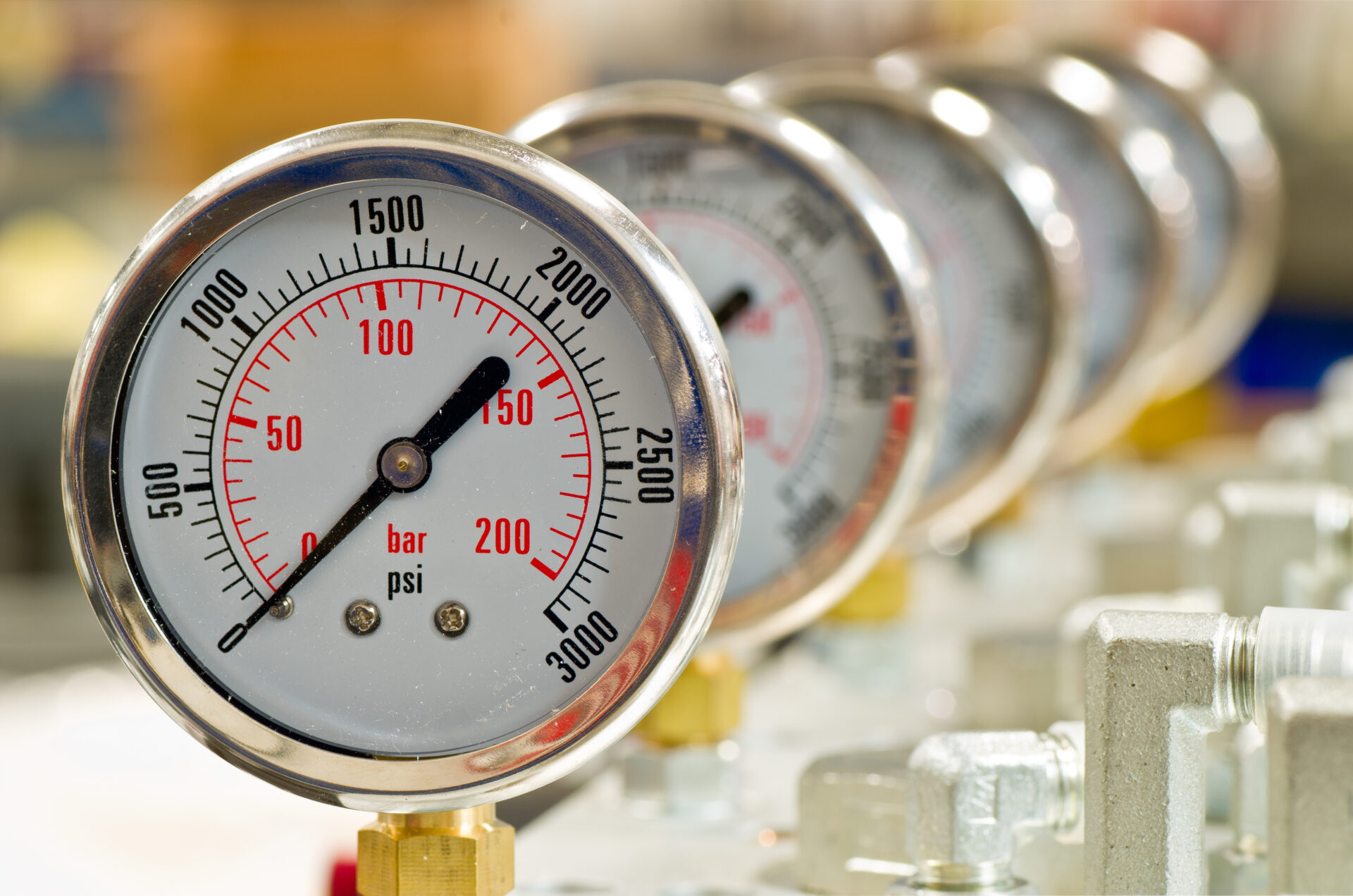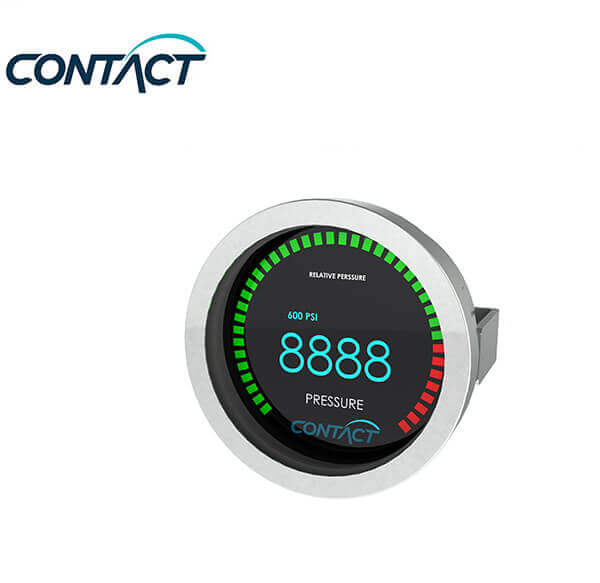Critical to industrial processes, instrumentation needs to provide accurate readings of temperature, pressure, and flow parameters. In layman’s terms, the gauge is an instrument that displays the value of any of these physical characteristics. Often, gauges are used to display values in real time, making them crucial to the day-to-day operations of a plant.
Before investing in gauges for specific applications, though, having an understanding of the differences between digital gauge and analog gauge models is important.
What Are Analog Pressure Gauges?
Analog pressure gauges are mechanical devices that contain a needle that shows the change in pressure by the measuring element. The device has been around for more than a century and dating back to the first industrial revolution when the world was transitioning to new manufacturing processes. Used in industrial applications since the Industrial Revolution, analog (dial) gauges have been around since the days of locomotives and steam processes. Gauges protected workers from high pressure instruments that posed safety hazards.

Advantages of Analog Gauges
Despite the advent of digital gauges, in some scenarios, it’s ideal to use analog gauges for industrial processes. Here are some of their benefits.
Measuring Dynamic Pressure Changes
Analog gauges are perfect for situations where you need to observe changes in dynamic pressure. This is because the dial and needle configuration of the analog gauge make it easier for the eye to follow it. Analog gauges allow you to take readings from a distance at-a-glance without having to interpret the digital display.
Spike Situations
Analog gauges help operators get an average reading during spikes. This is a noticeable advantage in comparison with their digital counterparts, which require the user to calculate the average themselves.
Affordable
In the long run, analog gauges turn out to be more reliable and affordable than digital equipment. This is because they face the risk of their battery going dead, or the instrument overheating.
No Power Required
Analog pressure gauges use mechanical parts, which means they don’t require an external power source.
Disadvantages of Analog Pressure Gauges
Just as analog gauges have their advantages, they also come with some limitations. Here are a few disadvantages of using an analog pressure gauge:
Damaged Easily
Analog pressure gauges are easily damaged, especially when exposed to harsh conditions.
Mechanical Vibrations
Analog pressure gauges are prone to mechanical vibrations, which can result in inaccurate readings.
Calibration
Analog pressure gauges are prone to corrosion, steam, and overpressure, hence require frequent recalibrations.
Sturdiness
The moving parts of analog pressure gauges, when exposed to constant pressure pulsation, can wear out quickly.
What Are Digital Pressure Gauges?
As mentioned above, the analog pressure gauge was a standard instrument to measure the pressure of liquids and gases for many years. However, with the advent of technology, electronic gauges came into existence. These digital gauges use a transducer that converts pressure and temperature variations into proportional electric signals. A microprocessor then converts these signals into a numeric value which is later digitally displayed – resulting in more accurate, precise pressure readings as compared to analog gauges. But that’s not the only advantage that they offer.

Advantages of Digital Gauges
Accuracy
As mentioned above, the key advantage of digital pressure gauge is that it provides highly accurate readings. Not only are they precise, but they are also extremely fast, making them an ideal choice for the measurement of pressure effectively and efficiently. Furthermore, they eliminate the requirement of taking a manual reading, making the process much convenient and less labor-intensive.
Typically, electronic gauges can take pressure readings in different international measurement units, including psi, MPa, and bar. Most of them contain a multi-function display, which can show the reading in a bar graph. The minimum and maximum feature provide a comprehensive view of pressure readings.
Durability
Owing to a digital gauge’s solid-state design, they’re increasingly utilized in high vibration applications. As opposed to an analog gauge’s needle that is prone to fluctuate in such situations, digital gauges are ideal for providing an accurate reading.
Durable Built
Digital pressure gauges are built from aluminum or stainless steel and offer solid protection against drops, shocks, and hazardous chemicals.
Calibration
Without losing calibration, digital gauges withstand vibration and shock situations. This also makes these instruments adaptable for a large variety of industrial applications.
Repairability
Digital gauges can easily be repaired at affordable costs because their engineering units are readily available. They are also user-friendly as they allow operators to set battery times and offer the ease of digital calibration.
No Operator Required
The electric gauge can record a reading digitally, abolishing the need for an interpretation of an operator.
Steady Readings
Digital pressure gauges are not susceptible to vibrations and overpressure spikes, hence provide accurate readings under rough conditions. The results in a digital display are also easier to read and the precise numbers allow for extremely accurate readings.
Re-Ranging is Easier
They are far easier to re-range than analog gauges and don’t give parallax error.
Disadvantages of Digital Pressure Gauges
Though few, there are some small disadvantages that accompany digital pressure gauges. These include:
Power Source Required
Digital pressure gauges are made from electronic components; hence, they require an external power source.
Cost
Digital pressure gauges contain sophisticated equipment and microprocessors, which makes them a more expensive option compared to analog pressure gauges.
Ensure a Safe Work Environment With Premium Quality Gauges
We offer a large variety of electronic gauges equipped with advanced options like alarms that help control high pressure pumps. Contact Instruments is a leading manufacturer of electronic and hydraulic drilling instrumentations in Leduc, Alberta. Our products include a diverse range of equipment, including electronic pressure gauges, standpipe pressure gauges, weight indicator systems and pressure sensors. Contact us for more information.
